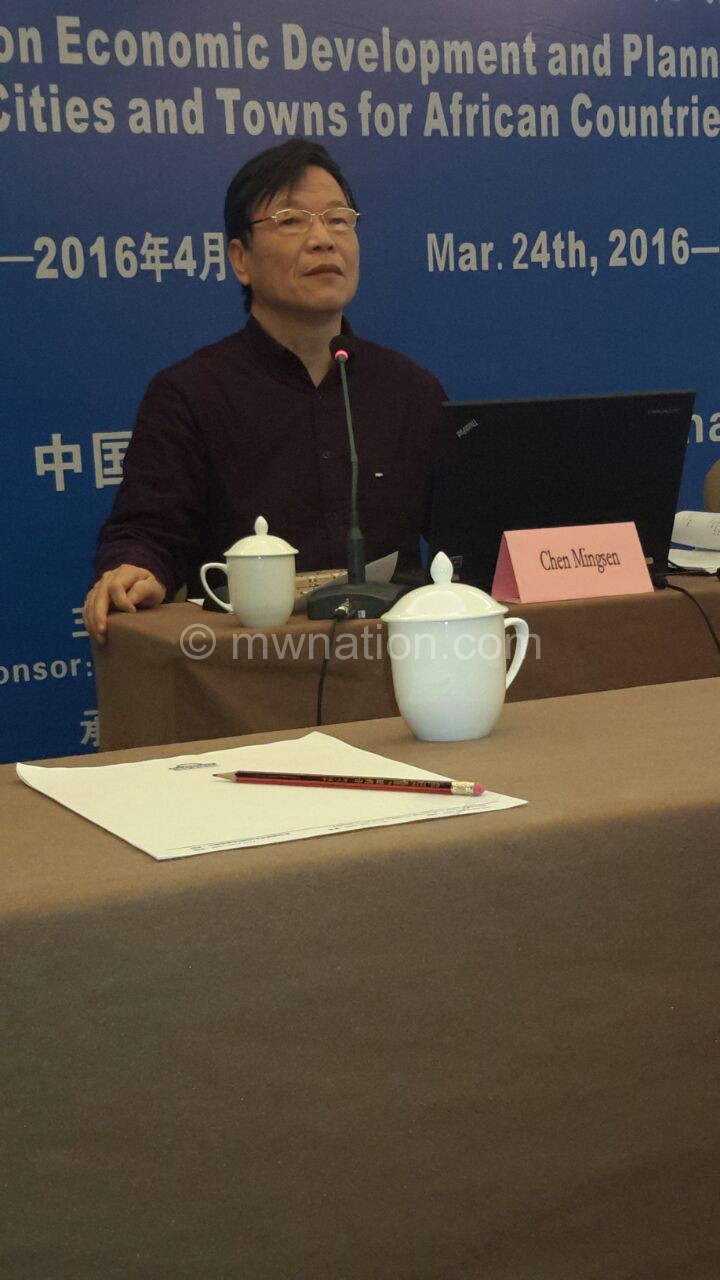China grapples with corruption
Despite its rapid economic development, the People’s Republic of China says it is grappling with high corruption cases involving high level officials.
Director of the Institute of Industry and Enterprise Development for the Fujian Provincial Party School, Chen Mingsen, told a group of visiting Africans on Saturday that a campaign against corruption has exposed many, including top government officials and has led to the arrest of about 100 of them.

Ten visitors from Malawi, Tanzania, Ghana and Nigeria are in China to attend a three-week 2016 seminar on economic development and planning analysis of cities and towns of African countries courtesy of the Chinese Government.
Chen predicted a rise of the arrests in due course, a development he attributed to administrative adjudication under China’s approval system.
“A typical example occurred at the China’s People University two years ago where a director in charge of student admission received [huge sums of money] for dubious registrations. It was a pure case of money and power which enable those who have them to monopolise systems,” he said.
However, Chen observed that the corruption would not deter China’s rise in economic aggregate which, he said, was expected to surpass the United States of America (USA)—the current world leader—by 2025.
He was optimistic that China would reach its target; thanks to its oversupply of produce which he said was supplementing shortages in the US, great infrastructure that was attracting foreign investment and the opening up to foreign cooperation.
“Our dividend of reform and demographic drove China’s rapid economic development. China should also accelerate the establishment of regional trade systems with other countries to break US embargo and isolation,” said Chen.
The director, who is also the economic adviser to Fujian Provincial Government, has confidence in China’s road map to a successful economic reform policy after it also managed to catch up with Australia, Canada, Russia, Italy, UK, France, Germany and Japan to become the world’s second economic superpower.
Among its reform strategies, China has from 2000 signed 12 free trade agreements (FTAs) with 29 countries and areas, with four FTAs under discussion.
In addition, Chen said China’s new reforms will include the free trade zone (FTZ) to expand its bilateral and multilateral agreements.
Deputy director of Development Research Centre at Fujian Provincial People’s Government, Wang Kaiming, observed that while the reforms met with resistance at the onset, China cannot work in isolation.
He said many feared that with the influx of foreign capital, China’s industries would be crushed and its social fabric influenced and compromised.
“We should not be worried with foreign influence or exploitation, but work together with them. There are lessons to be learned either way. We have the responsibility to cooperate and work with African countries as China cannot develop without them,” he said.





